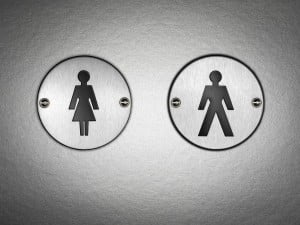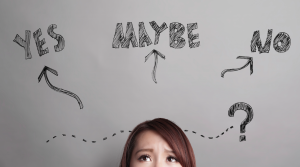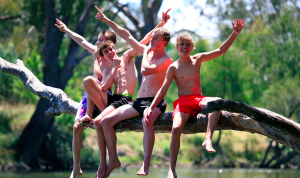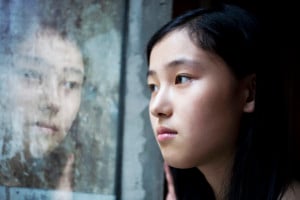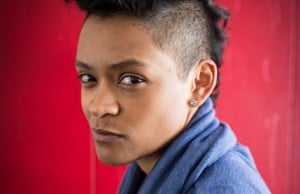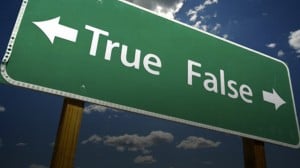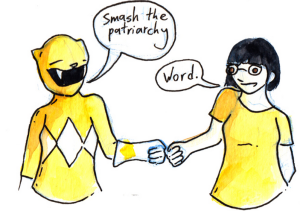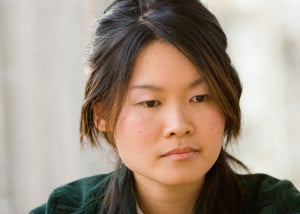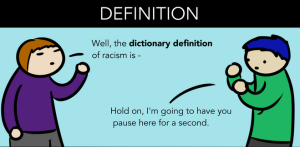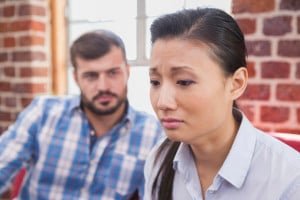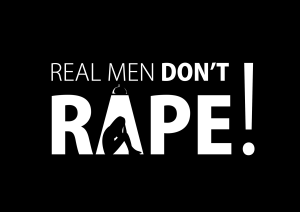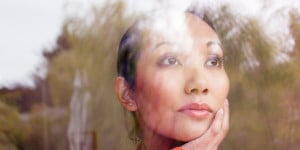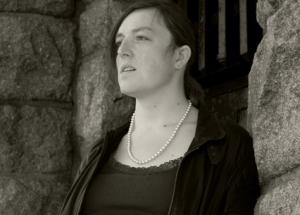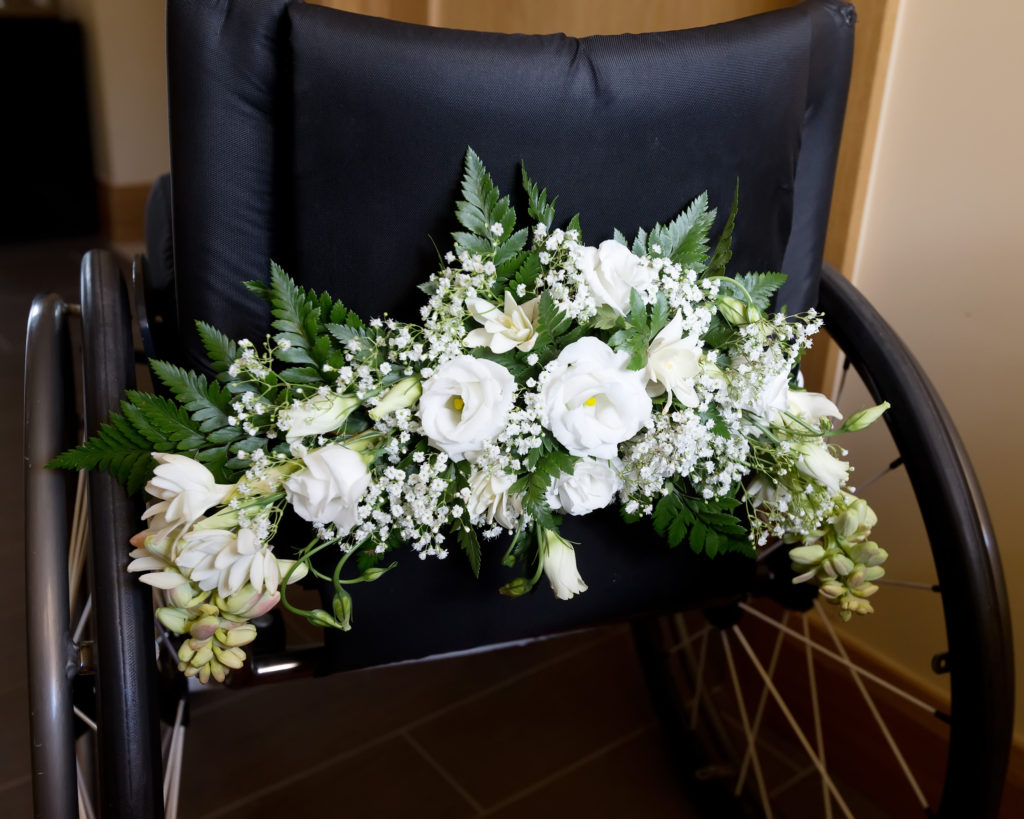
Wheelchair with white flower arrangement.
CW: violence against disability communities
When Cassandra J. Perry, a multiply-disabled activist and writer, was in peak dating mode, they were hit with assumptions that they were looking for a caregiver instead of a romantic partner.
While that may seem like a harsh leap to people who aren’t disabled, this is a common experience for disabled people who are single and looking for romance.
Growing up as a disabled Chinese girl, I was told that I needed to marry a “nice, Christian Chinese man to take care of me.” There’s a lot to unpack in those few words, but what stood out was the misperception that I’d be dependent on my partner.
Simultaneously, I was told that I’d have a hard time finding someone at all who’d want to be with me despite my disability. (Spoiler alert: It wasn’t difficult, and actually, we take care of ourselves as well as each other.)
“People automatically assume you can’t do things or you’re going to be a burden,” said 36-year old Perry, who lives in Washington, D.C. They add that there’s an unwillingness among the online dating community to pursue a relationship with someone who’s disabled once their disability is disclosed.
From an early age, we are socialized to follow oppressive gender norms and heteronormative standards that push us to follow a narrow life trajectory: Grow up, find a partner before the age of 30, get married and have kids.
Unfortunately, single women and non-binary people, in particular, are often looked down upon for not having children, not finding a partner by a certain age, and not being “desirable” enough — as if being single can never be a conscious choice.
This, of course, is nothing new. The connection between sexism, marriage, and disability stigma comes from a centuries-long history of discrimination against disabled people, particularly women.
In the late 1800s, women who behaved unsatisfactorily toward their husbands were actually sent to mental health institutions and declared to be “insane.” Some reasons they listed were “hysteria,” “asthma,” “epileptic fits,” and “imaginary female trouble.”
On Being Disabled and Desired
When it comes to relationships and sexuality today, disabled people often experience additional discrimination and patronizing attitudes, even from non-disabled loved ones.
People with disabilities may be pressured by their families or social circles to settle and marry current partners, or find a partner they can pass the torch to next as if a disability is a form of baggage.
Disability activist Kirsten Schultz, 29, says families tend to want their disabled relatives to “transcend their barriers” — that is, follow a traditional life trajectory successfully in spite of their disabilities.
“I think, too, there are a lot of families who go the other way and infantilize the person who’s disabled. ‘Oh, nobody’s going to love you. It’s better if you live with me forever. You’ll be lucky if you can find someone.’ These are comments I heard growing up,” says Schultz, a sex educator based in Madison, Wis. Schultz has 16 diagnoses that include fibromyalgia, systemic juvenile arthritis and PTSD.
“Some of these are already negative self-talk, but then you’re getting it reinforced from people around you,” Schultz says. “It’s just another hit to self-esteem.”
In the 1930s, during the Holocaust, the Nazi government passed a law that allowed for people with disabilities to be sterilized. Shortly after, they used disabled people in human experiments, considering them to be weak and a burden on society anyway.
While this past treatment of disabled people is undoubtedly horrible, historic prejudice remains today. Indeed, people with disabilities are rarely seen as being sexual, sexually experienced, desirable, or worthy of a romantic life.
In fact, disabled are often treated and viewed even by people close to them as anything but. In my own life, I’ve learned that these external perceptions can turn into internalized ableism, feeling like I’m undesirable or that I shouldn’t be confident about my body or my ability to be a good romantic partner.
Other disabled people may feel like they have to lower their standards or even settle.
Take for instance, Seattle-based dating coach Amin Lakhani, who ended a relationship after he realized that he was unhappy. Prior to the breakup, he said some of his friends tried to talk him out of it, saying he needed to adjust his expectations.
“There’s a misconception that there’s not much (disabled people) can do about their romantic situation, that they’re pretty much stuck,” says Lakhani, 29, who has Charcot Marie Tooth Syndrome, a form of muscular dystrophy. “Whereas the assumption with able-bodied people is that they could go out and do something about it.”
Getting Hitched Sometimes Isn’t An Option At All
Marriage doesn’t just come with social stigmas for disabled people — systemic barriers make it impossible for some disabled couples to get married.
At the age of 21, Perry began receiving disability benefits. In 2008, when Perry got married, the benefits disappeared.
“I lost all of my income,” Perry says. “I started having to pay copays and deductibles. They really added up and put stress on our marriage and we ended up separating. Now, we’ve been separated for three years.”
If Perry decides to remarry, they would again risk losing financial support — more specifically, their access to Medicaid, which 74 million Americans rely on for health care. Such government programs help disabled people pay for skyrocketing health care costs, but as disability activist Dominick Evans says, “to remain on these programs we essentially have to remain living in poverty.”
When couples get married and one or both partners are disabled, government programs like Medicaid judge the incomes of a household to determine the number of benefits that should be allotted. If the couple’s incomes are collectively above a certain threshold, they could be denied significant health care benefits required for the disabled partner’s (or partners’) survival.
It’s important to understand these layers of oppression because, according to Schultz, oftentimes “(marriage) is seen more through the lens of how this disabled person is taking advantage of the non-disabled person, trying to get some sort of perk out of it.”
Obviously, the reality is a lot more complicated. For many disabled couples, there just aren’t enough resources to accommodate them; as a result, spouses may adopt the role of caregiver because the disabled partners aren’t eligible for benefits to help them out.
Perry says they know many disabled people who have unwillingly chosen not to get married, but instead to be with a life partner, because the classism and ableism rooted in the nation’s health care system would penalize them legally for doing so.
“It’s unfair because I think it’s taking away our basic human desires to have fulfilling relationships,” Perry says. “With disability, it’s considered that you’re just trying to milk the system. Depending on who you talk to, there’s the (idea) that if you want to get married, then just go get married. Don’t worry about services or money. But that’s not realistic.”
Defining “Happily Ever After”
While Lakhani says he hopes to get married someday, he harbors some doubt as to whether that’s what he really wants in life. When family members like his mother drop a not-so-subtle hint about marriage, he gently pushes them. “Why? Why is that so urgent?”
“A lot of times, she doesn’t really have an answer other than, ‘well it worked for me.’ I realized it came from a desire to take care of me and protect me. She hopes when she’s not in this world, there will be somebody to look out for me,” Lakhani says. “But there are other ways to do that, like with friendships, with family, with assistants or caregivers.”
For disabled people who feel the pressure to adhere to a specific life trajectory, Lakhani suggests tuning in to what you believe is best for you, and questioning your desire to fit a traditional model of pursuing relationships.
And yet, even for disabled people who are genuinely hoping to settle down, fitting into that mold can be difficult.
Vilissa Thompson, a 32-year-old little woman with osteogenesis imperfecta, is single and childless. At this stage in her life, Thompson says nobody asks her about marriage, having children, or other ‘benchmarks’ that many of her friends have already met.
“There’s a big misconception that to say people don’t date or their dating lives isn’t worth exploring or at least asking about,” says Thompson, a social worker and disability advocate who’s hard of hearing and based in Winnsboro, S.C. “In some ways, for me as a single woman, it’s good because you don’t get to deal with questions. But sometimes I wish somebody would ask me, ‘are you dating?’”
Just like for non-disabled people, the clock is ticking for disabled people over 30. But single people with disabilities often encounter a catch-22 similar to Thompson’s, as they’re expected to find a lifelong partner “despite” their purported lack of sexuality or interest in romance.
Whether you’re married, you’re single and searching for a lifelong partner, you’re in a committed relationship, or you’re happily single, those are all valid choices that need to be respected and heard.
And for those who are looking to help their disabled loved ones, wait until your advice is sought after. Ask more neutral questions about their love lives, trusting that disabled people can take care of themselves and respecting their personal decisions — whatever those may be.
In order to achieve full equality, society must recognize that disabled people are non-monolithic, deeply complex human beings with hopes, desires, fears and life goals just like everyone else.
“Honestly, if you can’t see somebody for more than their parts and not what makes them whole, then that person doesn’t need to bother with you in the first place,” Thompson says.
[do_widget id=’text-101′]
Wendy is a national reporter based in New York City, with a focus on health, politics, and social issues. She is a disabled Chinese American woman and a graduate of Columbia Journalism School. Her work has appeared in The New York Times, Teen Vogue, Bustle, Columbia Journalism Review and more. Follow her on Twitter at @wendyluwrites or visit her website at wendyluwrites.com.
Search our 3000+ articles!
Read our articles about:
Our online racial justice training
Used by hundreds of universities, non-profits, and businesses.
Click to learn more
Most Read Articles
- « Previous
- 1
- …
- 30
- 31
- 32





